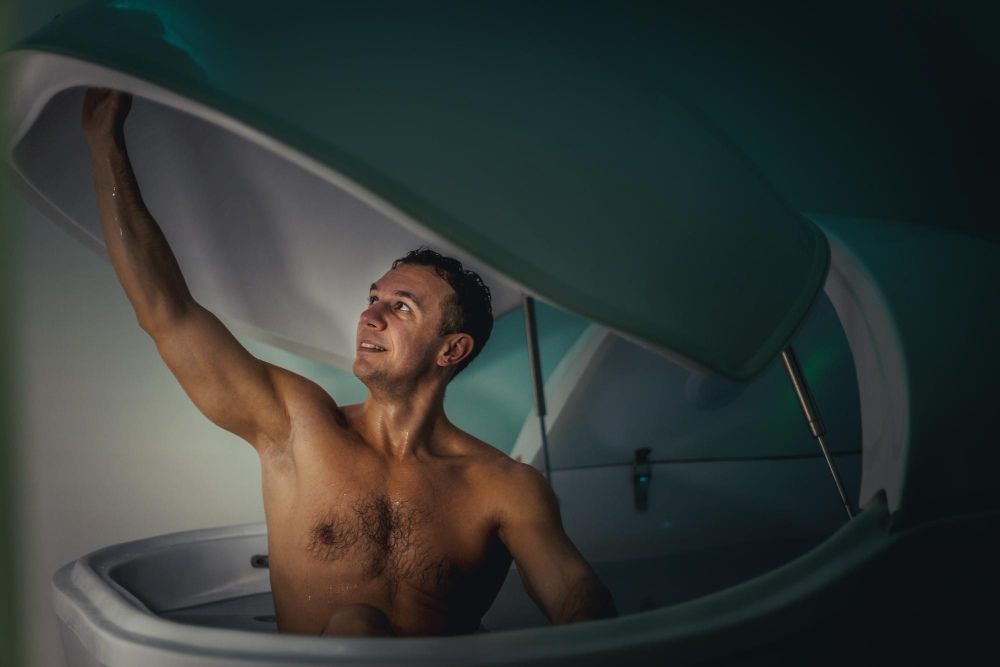Float Yourself to Better Health
In the 1950s, John Lilley began the exploration of sensory deprivation for human benefit. The early water tanks were upright and considered claustrophobic. Only NASA trainees were braving this new technology. Helmets were initially used to provide air to people who tried these vertical tanks. In the 1970s, Lilley worked with Glenn Perry to develop the horizontal pods which are used today. Floating is achieved by filling the floatation tank with Epsom salt and water to achieve buoyancy which keeps the face above water during the float session. This new tank style eliminated a lot of the claustrophobic nature of the therapy.
The goal of Floatation is REST (Reduced Environmental Stimulation Therapy), is to reduce all sensory input. This includes various types of touch including pressure and heat, taste, hearing, seeing, etc. Proprioception (knowing where you are in space) and the sensation of gravity also disappear.
Studies have shown surprising health benefits, including:
- Stress reduction
- Lessening of muscle tension and pain
- Decrease of anxious and depressed moods
- Overall health improvement by increasing relaxation, happiness, and a general sense of well-being
- Lower blood pressure and heart rate
Float tanks can be very helpful for highly anxious people, but anyone looking for relaxation or self-care can benefit from their use. A float session generally takes between 45-90 minutes, and participants shower before and after the therapy. There has been a surge in popularity, so this therapy is likely located close to where you live. A conversation with your holistic health practitioner can help you decide if a flotation tank session is right for you. It’s important to note people with epilepsy shouldn’t float alone, and those with kidney disease or orthostatic hypotension should consult their doctor before floating.
REFERENCES
- Feinstein, Justin S., et al. 2018. “Examining the Short-term Anxiolytic and Antidepressant Effect of Floatation-REST.” PloS one, Feb. 2, 2018, 13(2): e0190292. doi:10.1371/journal.pone.0190292.
- Kjellgren, Anette, and Jessica Westman. 2014. “Beneficial Effects of Treatment With Sensory Isolation in Flotation-tank as a Preventive Health-care Intervention-A Randomized Controlled Pilot Trial.” BMC Complementary and Alternative Medicine, Oct. 25, 2012, 14: 417. doi:10.1186/1472-6882-14-417
- Witte, Laura, Carlos Santo, Mark E, Archambault, Thomas Colletti, Randy Danielsen. 2021. “Floatation Therapy for Specific Health Concern.” Natural Medicine Journal.






